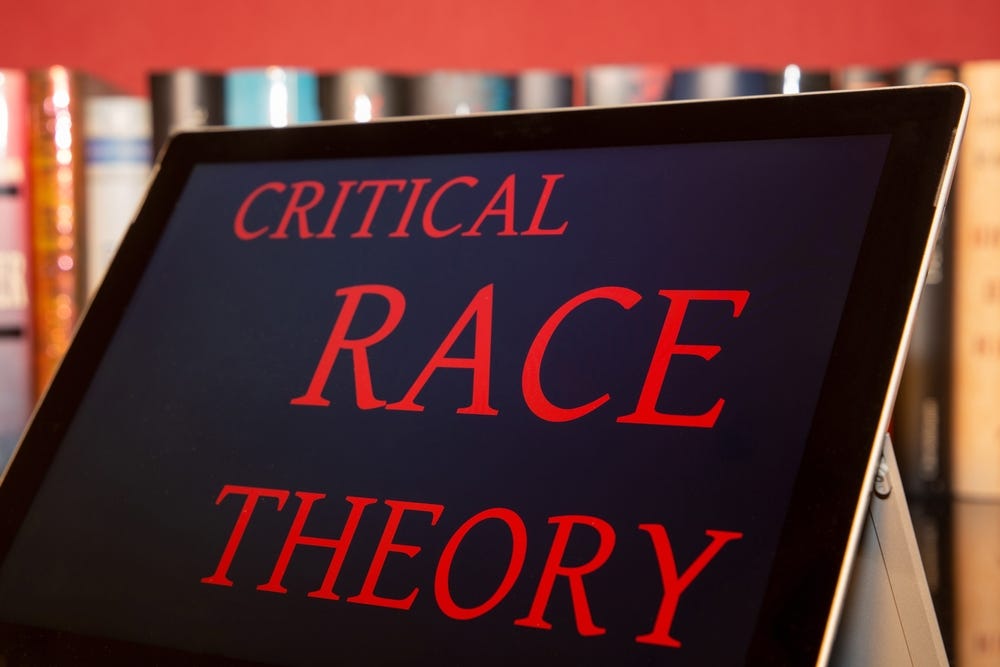E-Pluribus | January 10, 2022
Substituting wokeism for scholarship, the origins of Critical Race Theory, and the pandemic is bringing out the worst in us.
A round up of the latest and best writing and musings on the rise of illiberalism in the public discourse:
Louis K. Bonham: The Emory Law Journal Abandons Scholarship for Wokeism
At the Minding the Campus website, Louis K. Bonham writes of a recent incident involving the student-run law journal at Emory University School of Law. After soliciting an article from University of San Diego Law School professor Lawrence Alexander, the board of the Emory Law Journal declined to publish Alexander’s submission challenging the concept of systemic racism as being “hurtful and unnecessarily divisive.”
Another year, another incident of fundamental scholarship principles being sacrificed in favor of “feelings” and the woke agenda—and more worthy nominees for the next Minding the Campus Trofim Lysenko Award for the Suppression of Academic Speech.
Our latest episode comes courtesy of the Emory Law Journal (ELJ) editorial board, helmed by current Editor-in-Chief Danielle Kerker Goldstein and assisted by Executive Articles Editor Shawn Ren. The ELJ had invited University of San Diego Law School professor Lawrence Alexander to contribute an article to a Festschrift in honor of longtime Emory Law School professor and constitutional law scholar Michael Perry.
However, after Professor Alexander declined to “greatly revise” the bulk of his article (which, inter alia, challenged the concept of “systemic racism”), the ELJ board took the admittedly “extreme action” of withdrawing its publication offer, finding Professor Alexander’s writing to be “hurtful and unnecessarily divisive.” This censorship has led two of the other contributors to the Festschrift to withdraw their articles in protest, and two others to demand that their contributions be published with an introductory blurb protesting the ELJ’s shameful treatment of Professor Alexander.
Thus, what was supposed to be an honor to Professor Perry and a contribution to constitutional law scholarship has now degenerated into an episode of cancel culture writ large, and a huge black eye for the ELJ, Emory University School of Law, and, quite possibly, the careers of the students involved.
Read it all.
Daniel Buck: Where Critical Race Theory Comes From
It remains to be seen if Critical Race Theory will maintain its momentum in 2022, but Daniel Buck kicks off the year at National Review with a look into how the phenomenon has come about. CRT represents a fundamental change in the way education is conducted in every discipline, not simply history or literature.
Critical theory affects more than just the esoteric approach to literary analysis. In Seattle, the math curriculum centers on themes such as identity, oppression, history of resistance and liberation, and action. Its guiding questions ask: “How important is it to be right? What is right?” and: “How can we use math to measure the impact of our activism?” Social-studies classrooms forgo learning the outlines of history, the actions and foibles of great leaders, and the basics of political philosophy to instead run action-civics projects. These take the project-based learning of the romantics and apply a radical bent. Instead of designing model bridges or performing their own plays, action civics would have students research local problems, design solutions, and propose them to their local legislatures. There’s nothing inherently nefarious about this latter project within a narrow curricular framework for high-school students, but when such activism becomes the sole focus of a classroom, the school becomes not a place of learning, traditionally understood, but an avenue for activism — much to Freire’s delight.
In critical pedagogy, every book, every historical event, every mathematical concept — everything becomes a means to advance the same progressive worldview. Thus, our problem is far larger than CRT, narrowly understood. Critical pedagogy both reenvisions and demands an overt redefinition of education. And while propaganda passing as education is concerning, there’s a far more fundamental problem: This approach doesn’t lead to students who can read, write, or think well. It works against the intellectual liberation that defenders of a liberal-arts tradition advocate for through the acquisition of true knowledge and competence.
Read the whole thing.
Matthew Yglesias: All kinds of bad behavior is on the rise
The decline in civility in recent years seems to have gone into overdrive with the onset of the pandemic. At his Slow Boring Substack, Matt Yglesias looks beyond the uptick in some crime figures that have gotten attention in light of the “Defund the Police” movement and examines data from a number of different areas that indicate increasing bad behavior isn’t limited to criminal activity.
Shootings and murders surged in 2020, and while the 2021 increase appears to have been substantially smaller (as previously covered, this data reports with annoyingly large lags), the overall trend was toward more deadly violence in most cities, even as a few posted declines.
This has been a huge political fiasco for the substantively unsound notion of defunding the police and has also unfortunately kneecapped more reasonable reform ideas. But defunding police departments can’t possibly be the cause of the national murder surge because very few departments actually cut police funding. And while it would be a stretch to say the increase has been uniform, it has certainly been broad-based — red states and blue states, jurisdictions with reform DAs and jurisdictions with traditional ones, and even the handful of cities with GOP governors were all impacted by the rising tide of mayhem.
[…]
I don’t have a great policy solution here that’s going to make everyone feel happy and healthy and psychologically stable so that we don’t go out wrecking our cars and shooting people while drunk. But I can see people looking at one corner of this problem and condemning soft-on-crime liberals or fanatical anti-maskers and developing a very narrow, politicized view of things.
[…]
The true toll of the pandemic, in other words, goes well beyond the official death toll of the virus. American society is actually fraying at the seams in some pretty significant ways. And this to me is fundamentally part of the argument for federal leadership in setting some terms around a “new normal” of endemic SARS-Cov-2 rather than continually shifting the terms of a national state of emergency. […]
Read it all here.
Around Twitter
A few thoughts from Wesley Yang on “special”-ness:
Glenn Greenwald and Charles Cooke react to a since deleted tweet from director, producer and screenwriter Judd Apatow that asked, “Why doesn't the FCC take away the license of Fox News?”
Finally, a teaser for something new from Nancy Rommelmann and Peter Boghossian:








